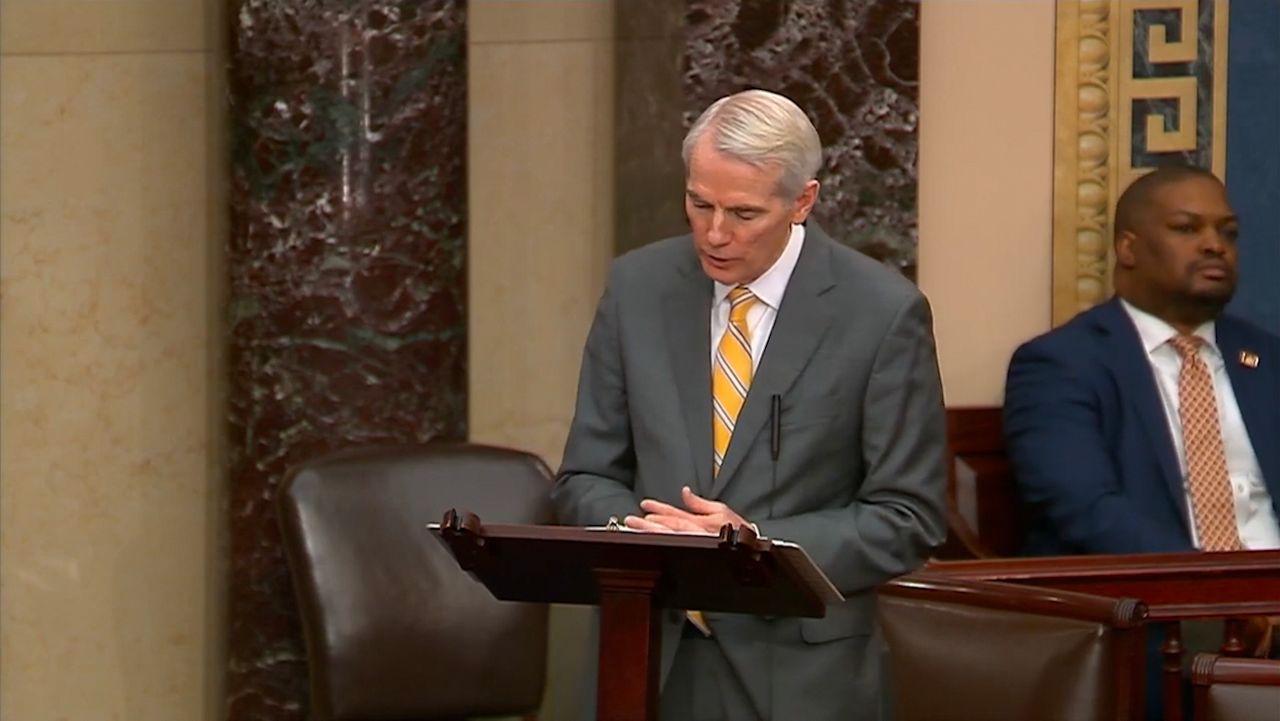CINCINNATI — Seven years after his Supreme Court case granted same-sex couples across the country the right to marry, Ohio native Jim Obergefell still considers it surreal to see his name as a metonym for marriage equality.
“Sitting in that courtroom that day and hearing Justice Kennedy speak and read his summary decision,” said Obergefell. “That’s still what I think about when I go back to that day, that feeling of belonging that feeling of being seen and being respected by the government.”
What You Need To Know
- The Respect for Marriage Act passed the Senate by a 61-36 vote
- Both Sen. Sherrod Brown (D) and Sen. Rob Portman (R) voted in favor
- Obergefell v. Hodges legalized same-sex marriage in 2015
- Obergefell considers the law less protective than the 2015 ruling
Even more surprising to him, however, was seeing his case back in the news after this summer’s Dobbs v. Jackson Women’s Health Organization, when in his concurring opinion, Justice Clarence Thomas cited Obergefell v. Hodges as a decision worth revisiting, due to its reliance on substantive due process.
“I’m still surprised, disappointed, disheartened, angry, that here we are just seven years later worried about losing marriage equality,” Obergefell said.
Codifying same-sex marriage

Not long after, the House drafted the Respect for Marriage Act, which would codify federal protections and recognition for same-sex and interracial marriages by repealing the 1996 Defense of Marriage Act.
In November, the Senate passed its own version of the act, adding several provisions to protect religious freedom for places of worship and nonprofits against legal action for not acting in support of same-sex unions. The compromise earned the legislation filibuster-proof support and 12 Republican votes, including Sen. Rob Portman (R-Ohio).
“The substitute amendment is a carefully negotiated well-crafted piece of legislation that protects people of faith as well as same-sex married couples,” he said on the Senate floor.
For Obergefell, however, the legislation feels like a hollow victory.
“The fact that we have this legislation that would at least guarantee recognition of marriages across all 50 states, I’ll take that,” he said. “But honestly, this legislation, as it’s been written with all the amendments that have been added, concerns me.”
Obergefell believes the religious liberty provisions open the door to legalizing discrimination of same-sex couples among businesses and nonprofits. And while the law would require all states to recognize legally-performed same-sex marriages, he’s concerned it would allow state laws to restrict what marriages can be performed within their borders should Obergefell v. Hodges get overturned.
“This allows states like Ohio, where I live, to suddenly say, once again, ‘We have this Defense of Marriage Act on the books, we never did anything with it, and now we’re going to stop allowing marriages between same-sex couples,’” he said. “I feel like it’s a step in place, if not a little bit of a step back.”
Obergefell and Arthur

That was the position Obergefell was in back in 2013.
More than 20 years into his relationship with John Arthur, Obergefell said his partner’s health was failing. ALS left Arthur partially paralyzed and the two didn’t have much time left.
They wanted to get married, but couldn’t legally do so in Ohio. So they flew to Maryland and got married on the tarmac.
“We were forced to go to another state,” Obergefell said. “To take a man who had no physical abilities to go to another state to do something that millions of others take for granted.”
Arthur died just months later and Obergefell’s fight to get his name listed as his husband on the death certificate worked its way up to the Supreme Court over the next two years.
“I didn’t let myself think we were going to lose,” he said.
What’s next for same-sex marriage
Seven years later, the Respect for Marriage Act is headed back to the House and expected to pass easily and be signed into law by President Joe Biden. But regardless, Obergefell v. Hodges remains the law of the land.
No federal or state protections will change, barring another Supreme Court decision. Obergefell hopes it will never come to that.
“Obergefell v. Hodges made an entire generation of people feel like they belonged,” he said.
Though his marriage to Arthur was cut short, Obergefell said he doesn’t regret all they went through together to make it happen.
“Marriage means being able to say to that one person, the person you love more than anyone else in the world, that ‘You are the person I chose to live my life with,' ” he said. “I’m a better person because of John. He made me more generous. He made me more optimistic.”



